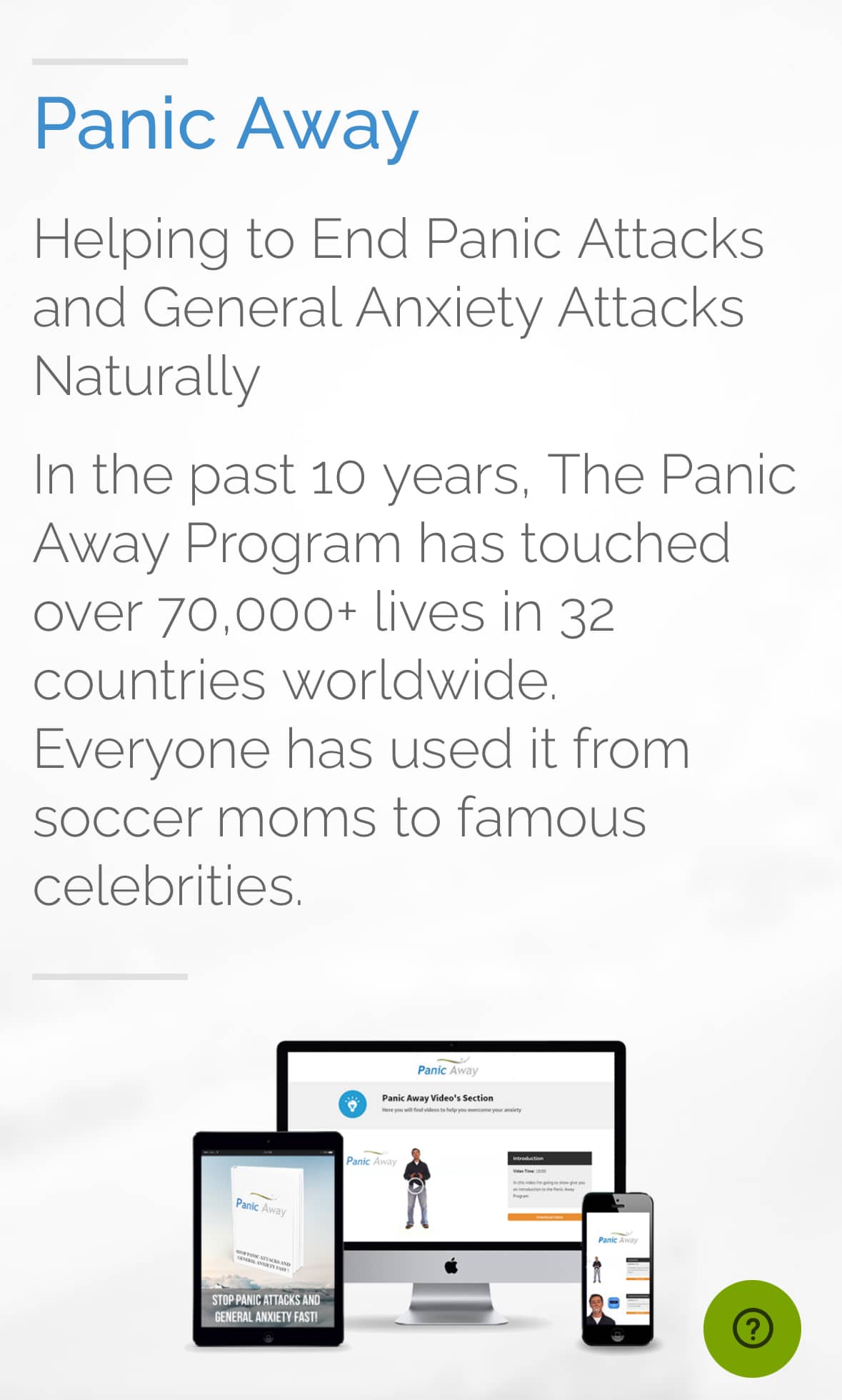How to Deal with OCD Repressed Emotions

Obsessive-Compulsive Disorder (OCD) is a complex mental health condition that extends far beyond the commonly recognized symptoms of obsessions and compulsions. Often lurking beneath the surface are repressed emotions—powerful feelings and experiences that individuals with OCD may struggle to confront or process.
In this comprehensive guide, we will explore the intricate relationship between OCD and repressed emotions and offer practical strategies on how to deal with this challenging aspect of the condition.
Repressed emotions can manifest in various ways within the context of OCD. They can fuel the intensity of obsessions, compel compulsive behaviors, and contribute to the distress that individuals with OCD experience. To effectively manage OCD, it is crucial to understand the role of repressed emotions and develop strategies for addressing them.
In the following sections, we will delve into the nature of repressed emotions in OCD, how they intertwine with obsessions and compulsions, and provide guidance on recognizing, acknowledging, and ultimately dealing with these buried feelings.
Whether you are personally navigating the complexities of OCD or seeking insights to support a loved one, this article aims to shed light on the critical intersection of OCD and repressed emotions, offering hope and practical steps toward a more balanced and emotionally healthy life.
What are you waiting for? – Download Your FREE OCD Worksheets Now!

Ready to reclaim your life, one fearless step at a time? Your personalized path to anxiety-free living starts now!
Unlock your extraordinary future with PanicAway!
Don’t let anxiety define your story. Choose PanicAway, and step into a world bursting with limitless opportunities and unshakable self-assurance. Your personalized path to an extraordinary life is right here!
Meet PanicAway: Your Personal Roadmap to Liberation from Anxiety
Tired of letting anxiety steal the best moments of your life? It’s time to take charge and embrace a world filled with possibilities, free from fear and panic.
Why PanicAway is Your Perfect Ally in this Journey:
- Immediate Relief: Imagine those sleepless nights and crippling panic attacks becoming distant memories. PanicAway arms you with techniques for instant anxiety relief, putting you back in control.
- Empowerment from Within: It’s not about just managing anxiety; it’s about conquering it at its core. Rediscover your inner strength and emerge as a fearless, empowered version of yourself.
- Reclaim Your Freedom: Visualize a life where anxiety no longer dictates your choices. With PanicAway, you’ll savor the freedom to chase your dreams, explore the world, and seize every opportunity with unwavering confidence.
- Proven Success Stories: Join the community of individuals who’ve transformed their lives with PanicAway. You can be the next success story, and we can’t wait to celebrate your triumph!
- Comprehensive Support: You gain access to a treasure trove of resources, from life-changing e-books to enlightening audio guides. Plus, connect with kindred spirits on their own journeys to overcome anxiety.
How Your Repressed Emotions Are Tied in OCD
Obsessive-Compulsive Disorder (OCD) is often characterized by its hallmark obsessions and compulsions, but beneath the surface, repressed emotions can play a significant role in this complex mental health condition.
Understanding how your repressed emotions are intertwined with OCD is crucial for gaining insight into your symptoms and working toward effective management.
Here’s a closer look at this connection:
Amplified Anxiety
Repressed emotions can serve as a potent amplifier of anxiety in individuals with OCD. When you have unresolved emotions or past experiences that you’ve pushed deep down, they can resurface as intrusive thoughts and obsessions.
These thoughts, in turn, trigger anxiety and distress. Not to mention that OCD symptoms are highly Comorbid with anxiety disorders and various other mental disorders according to the Diagnostic and statistical manual.
Avoidance Behaviors
To cope with the anxiety stemming from repressed emotions, individuals with Obsessive Compulsive Disorder often resort to avoidance behaviors.
These behaviors can include avoiding situations, places, or people that might trigger these unresolved emotions. In the context of OCD, this avoidance can extend to situations that provoke obsessions.
Compulsive Rituals as Coping Mechanisms
Compulsions in OCD often serve as a means of managing anxiety and repressed emotions.
Engaging in compulsive behaviors can temporarily alleviate the discomfort caused by these emotions, offering a sense of control.
For example, repetitive counting or checking rituals might provide a brief escape from the emotional turmoil.
Thematic Obsessions
OCD obsessions can take on thematic qualities related to repressed emotions.
For instance, if you have unresolved anger or guilt, you may experience obsessions centered around harming others, causing accidents, or engaging in morally questionable actions.
These themes may include several OCD subtypes such as harm and relationship centered ocd. These obsessions reflect the emotions that have been pushed aside.
Interference with Treatment
Repressed emotions can complicate OCD treatment. If these emotions are not addressed in therapy, they can hinder progress in any OCD patient.
Therapy that explores and addresses repressed emotions alongside obsessions and compulsions can be more effective in achieving lasting relief.
Self-Reflection and Insight
Recognizing the connection between repressed emotions and Obsessive Compulsive Disorder is a crucial step toward self-awareness and insight.
It allows you to explore the underlying emotional triggers of your obsessive compulsive symptoms, paving the way for more targeted and holistic treatment.
Coping Mechanisms and Resilience
Addressing repressed emotions emotion regulation skills learning can enhance your coping mechanisms and emotional resilience.
As you work through these emotions in therapy, you can develop healthier ways of dealing with them, reducing the need for compulsive behaviors.
A Comprehensive Treatment Approach
Effective treatment for OCD should encompass both the management of intrusive obsessions and compulsions and the exploration of underlying emotions.
Cognitive-Behavioral Therapy (CBT), particularly Exposure and Response Prevention (ERP), and Commitment Therapy can be enhanced by incorporating strategies to address repressed emotions.
In summary, repressed emotions are intimately tied to Obsessive Compulsive Disorder , influencing the intensity of obsessions and the use of compulsive behaviors as coping mechanisms.
Recognizing this connection is a pivotal step in understanding the underlying factors contributing to your OCD symptoms.
It’s essential to work with a mental health professional who can guide you in addressing both the obsessions and the repressed emotions, offering a more holistic approach to managing and ultimately overcoming Obsessive Compulsive Disorder.
Related Articles – What is ROCD? Relationship OCD Symptoms, Causes, & Treatments
How to Recognize Your Repressed Feelings

Recognizing repressed feelings is a crucial step towards understanding the intricate relationship between your emotions and Obsessive-Compulsive Disorder (OCD). These buried emotions often fuel obsessions and compulsions, contributing to the complexity of the condition.
To gain insight into your repressed feelings and address them effectively, consider the following steps:
Self-Reflection
Take time for self-reflection. Begin by considering areas of your life where you experience heightened stress, anxiety, or recurring thoughts.
These emotions could be linked to unresolved feelings from your past.
Journaling
Keeping a journal can be a powerful tool for uncovering repressed emotions.
Write down your thoughts and feelings, especially those that are associated with obsessive thoughts or compulsive behaviors. Over time, patterns may emerge.
Mindfulness Practices
Engage in mindfulness meditation and mindfulness exercises.
These practices encourage you to be present in the moment and become more attuned to your emotions.
Mindfulness can help you recognize and accept feelings that you may have been avoiding.
Explore Childhood and Past Experiences
Emotions often have roots in past experiences, particularly those from childhood.
Reflect on your upbringing, significant life events, or traumatic experiences that might have left emotional scars.
Discussing these experiences with a therapist can be illuminating in both clinical psychology and behaviour research aspects.
Notice Patterns in Obsessions and Compulsions
Pay close attention to the themes of your OCD obsessions and compulsions.
Are there recurring patterns related to specific emotions, such as guilt, fear, anger, or sadness? Identifying these patterns can provide clues about underlying repressed feelings.
Seek Professional Guidance
Consult with a mental health professional who specializes in Obsessive Compulsive Disorder and related disorders.
They can help you explore and recognize repressed emotions in a safe and supportive environment. Therapy, particularly Cognitive-Behavioral Therapy (CBT), can be instrumental in this process.
Listen to Your Body
Physical sensations can also be indicators of repressed emotions.
Notice any bodily tension, changes in heart rate, or other physical responses when you experience OCD-related distress. These bodily cues may signal the presence of hidden emotions.
Acceptance and Non-Judgment
Be gentle and non-judgmental with yourself as you delve into your emotions.
Repressed feelings can be uncomfortable and challenging to confront.
Accept that they are a natural part of your experience, and embracing them is a crucial step towards healing.
Patience and Persistence
Recognizing repressed emotions can be a gradual process.
It may require patience and persistence. Don’t be discouraged by initial resistance or difficulty in identifying these feelings. Over time, with the right guidance, they can become clearer.
Connect with Support Networks
Sharing your experiences with trusted friends or family members can provide valuable insights. They may have observed patterns or behaviors that you haven’t noticed and can offer emotional support.
Recognizing your repressed feelings is a profound and transformative journey. It is a path towards greater self-awareness, emotional healing, and effective management of OCD.
By uncovering and addressing these hidden emotions, you can reduce their influence on your obsessions and compulsions, paving the way for a more balanced and fulfilling life.
Related Articles – Can OCD Cause Brain Damage?
Dealing With Your Feelings and Coping with OCD

Coping with Obsessive-Compulsive Disorder (OCD) involves not only managing obsessions and compulsions but also addressing the emotional turmoil that often accompanies the condition. Here are some strategies for dealing with your feelings and effectively managing OCD:
Validate Your Emotions
The first step in dealing with your feelings is to acknowledge and validate them.
Understand that it’s natural to experience a wide range of emotions, including anxiety, fear, frustration, and even shame, when living with OCD.
Validating your emotions allows you to accept them without judgment.
Seek Professional Help
A mental health professional with expertise in OCD can provide invaluable guidance.
Cognitive-Behavioral Therapy (CBT), particularly Exposure and Response Prevention (ERP), is the gold standard for treating OCD.
In therapy, you can learn strategies to manage both obsessions and the emotional distress associated with them.
Mindfulness and Meditation
Mindfulness practices and meditation can help you stay present in the moment and reduce emotional reactivity.
These techniques teach you to observe your thoughts and feelings without judgment, which can be particularly beneficial when dealing with OCD-related distress.
Emotion Regulation Skills
Learning emotion regulation skills can empower you to manage intense emotions caused by intrusive thoughts effectively.
This includes identifying triggers, challenging irrational beliefs, and developing healthy coping mechanisms to navigate emotional turmoil.
Self-Compassion
Be kind and compassionate toward yourself. OCD can be incredibly challenging, and you may experience self-criticism or guilt about your obsessions and compulsions.
Self-compassion involves treating yourself with the same kindness you would offer to a friend facing a similar struggle.
Support Systems
Lean on your support network. Trusted friends and family members can offer emotional support, understanding, and encouragement. Sharing your experiences with loved ones can help reduce feelings of isolation.
Group Therapy
Consider participating in group therapy for OCD. Connecting with others who are facing similar challenges can provide a sense of community and shared understanding.
Group therapy also offers opportunities to learn from others’ experiences.
Medication
In some cases, medication may be prescribed by a psychiatrist to help manage the emotional symptoms of OCD, such as anxiety and depression.
Medication can be particularly beneficial when used in conjunction with therapy.
Set Realistic Goals
Understand that recovery from OCD is a process that takes time.
Set realistic goals for yourself and celebrate small achievements along the way. Patience and perseverance are key to managing both OCD and your emotions effectively.
Education and Awareness
Educate yourself about OCD and the emotional components of the disorder. Understanding the nature of your condition can demystify your experiences and provide a sense of empowerment.
Develop a Routine
Establishing a daily routine can provide structure and predictability, which can help reduce anxiety and emotional fluctuations.
Include self-care activities in your routine to prioritize your emotional well-being.
Dealing with your intrusive thoughts, feelings and coping with OCD is a multifaceted process.
It involves recognizing and accepting your emotions, seeking professional help, and developing a toolbox of strategies to manage emotional distress effectively.
Remember that you are not alone in your journey, and with the right support and determination, you can navigate the challenges of OCD while nurturing your emotional well-being.

Ready to reclaim your life, one fearless step at a time? Your personalized path to anxiety-free living starts now!
Unlock your extraordinary future with PanicAway!
Don’t let anxiety define your story. Choose PanicAway, and step into a world bursting with limitless opportunities and unshakable self-assurance. Your personalized path to an extraordinary life is right here!
Meet PanicAway: Your Personal Roadmap to Liberation from Anxiety
Tired of letting anxiety steal the best moments of your life? It’s time to take charge and embrace a world filled with possibilities, free from fear and panic.
Why PanicAway is Your Perfect Ally in this Journey:
- Immediate Relief: Imagine those sleepless nights and crippling panic attacks becoming distant memories. PanicAway arms you with techniques for instant anxiety relief, putting you back in control.
- Empowerment from Within: It’s not about just managing anxiety; it’s about conquering it at its core. Rediscover your inner strength and emerge as a fearless, empowered version of yourself.
- Reclaim Your Freedom: Visualize a life where anxiety no longer dictates your choices. With PanicAway, you’ll savor the freedom to chase your dreams, explore the world, and seize every opportunity with unwavering confidence.
- Proven Success Stories: Join the community of individuals who’ve transformed their lives with PanicAway. You can be the next success story, and we can’t wait to celebrate your triumph!
- Comprehensive Support: You gain access to a treasure trove of resources, from life-changing e-books to enlightening audio guides. Plus, connect with kindred spirits on their own journeys to overcome anxiety.
Related Articles – Can Music Therapy Help OCD
Final Thoughts – How to Deal with OCD Repressed Emotions
The journey of dealing with Obsessive-Compulsive Disorder (OCD) repressed emotions is a profound and transformative one, marked by self-discovery, healing, and empowerment.
In this comprehensive guide, we’ve explored the intricate relationship between OCD and the emotions that often lie beneath its surface, driving obsessions and compulsions.
As we conclude, it’s essential to remember that you are not defined by your OCD, and there are effective strategies to navigate this complex terrain.
Recognizing repressed emotions is the first step towards understanding the depth of your condition. Through self-reflection, mindfulness, and the guidance of mental health professionals, you can unveil these hidden feelings, understanding how they intertwine with your obsessions and compulsions.
Seeking professional help, such as Cognitive-Behavioral Therapy (CBT), particularly Exposure and Response Prevention (ERP), can provide a structured and evidence-based approach to managing both your OCD symptoms and the emotional distress they bring. In therapy, you can develop essential skills for emotion regulation, self-compassion, and resilience.


